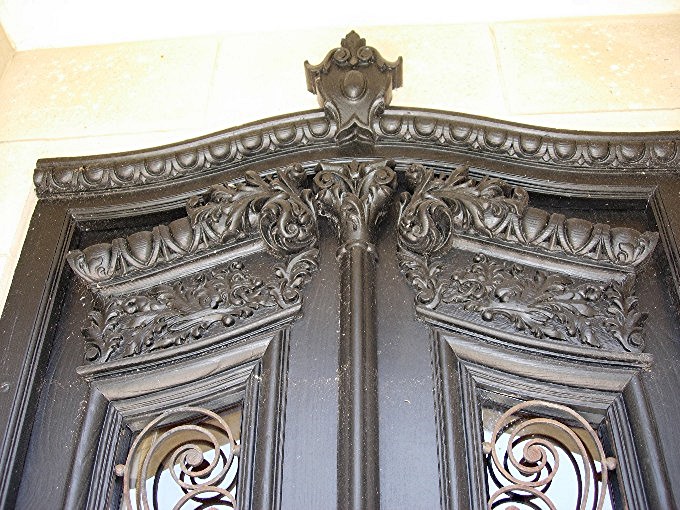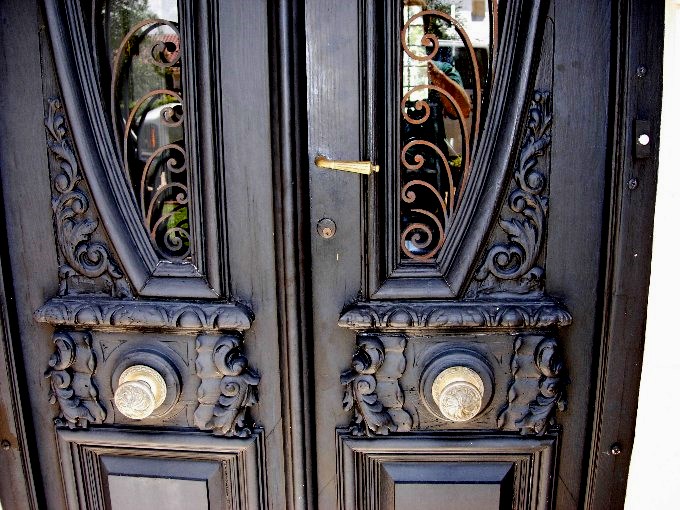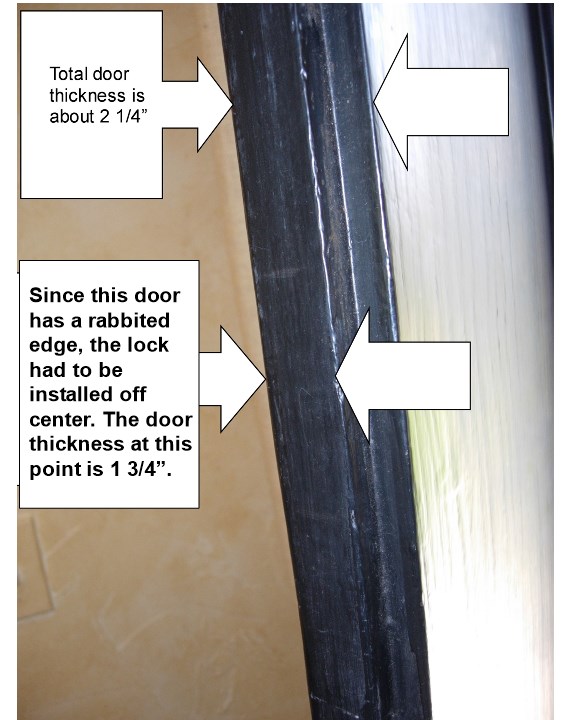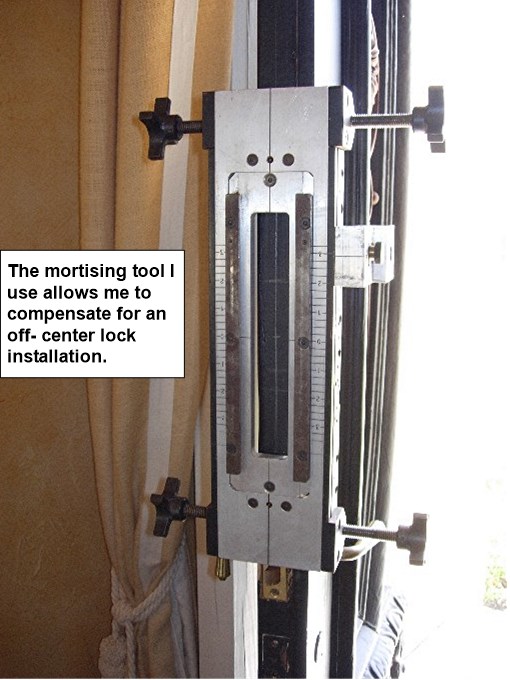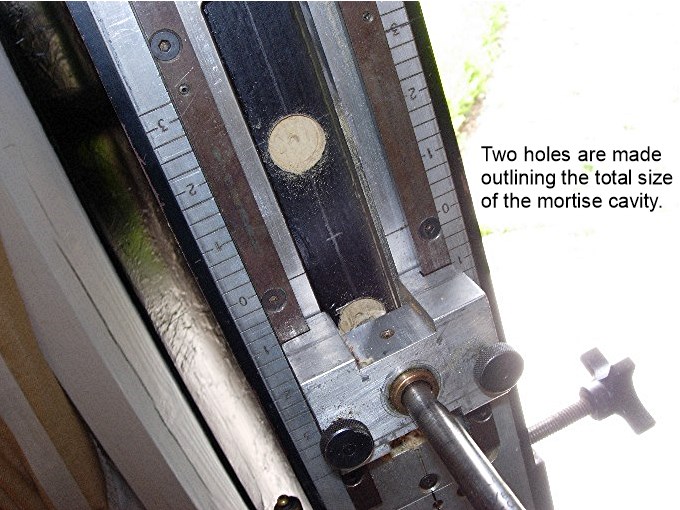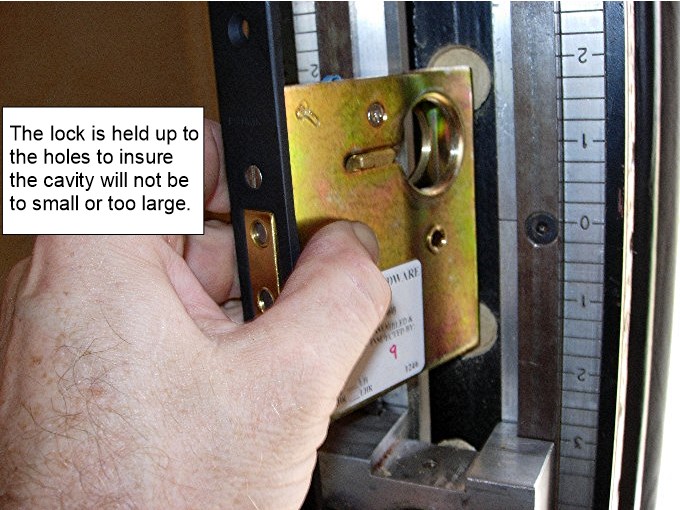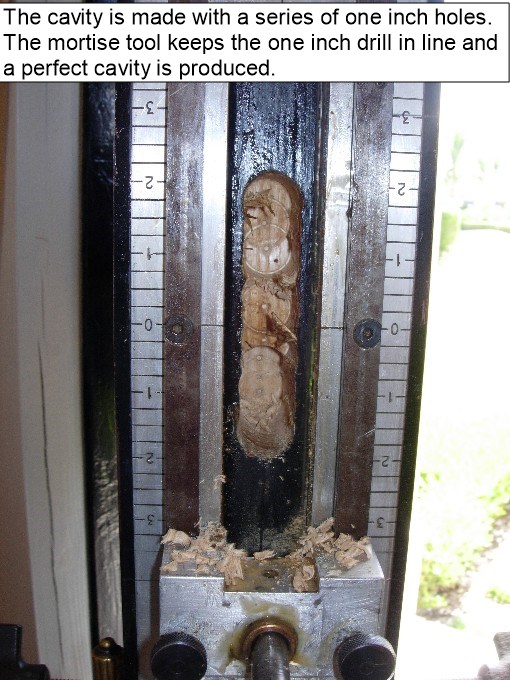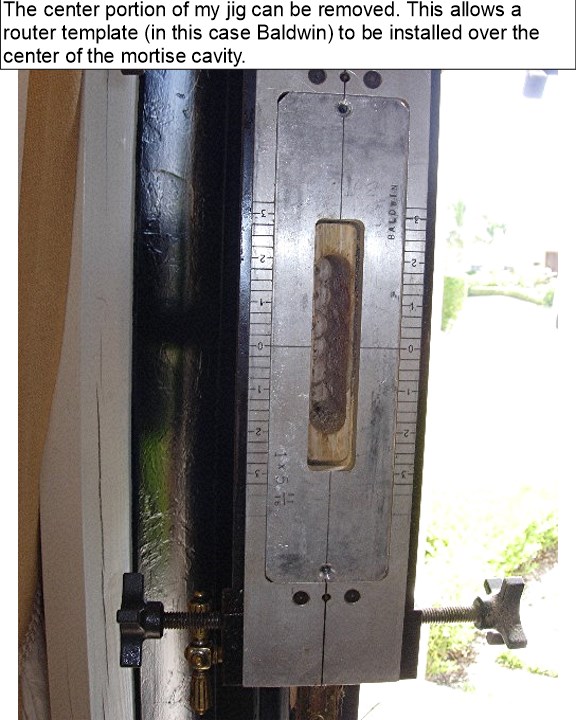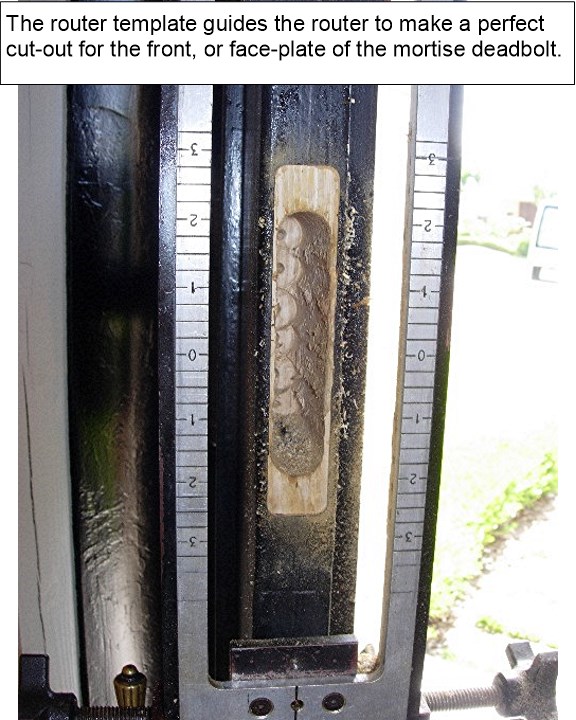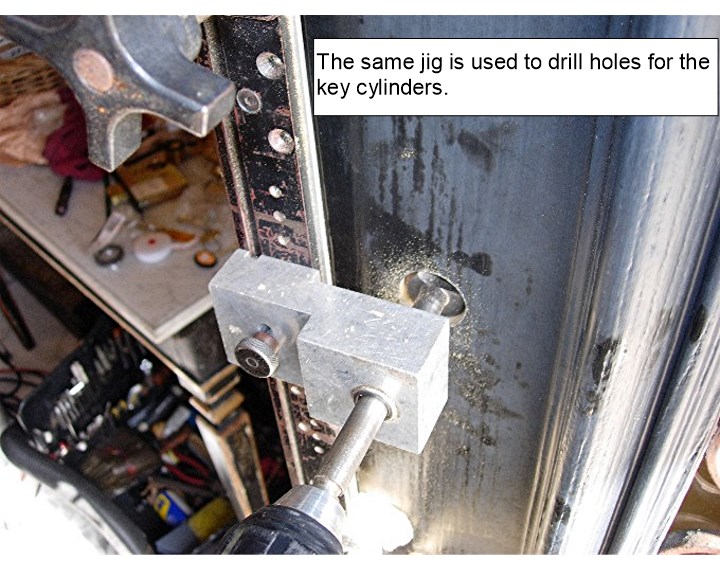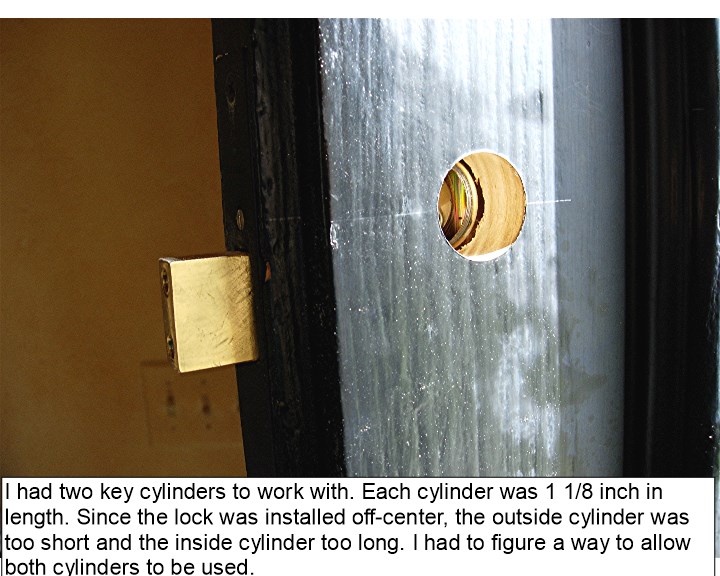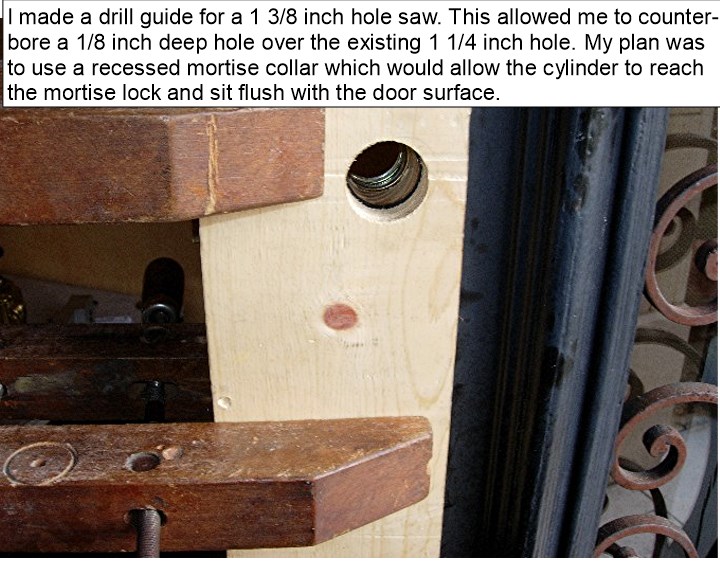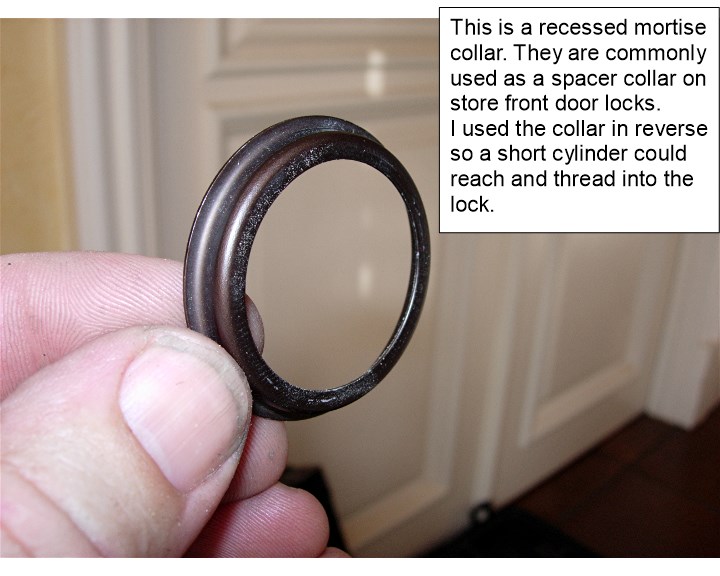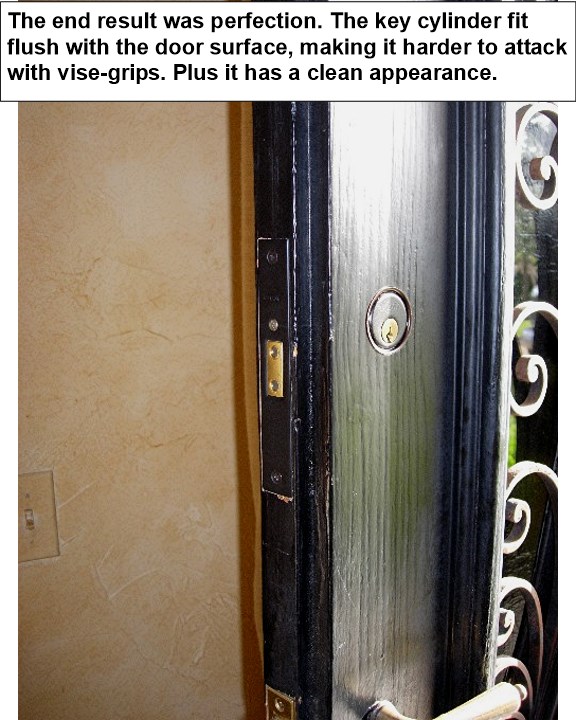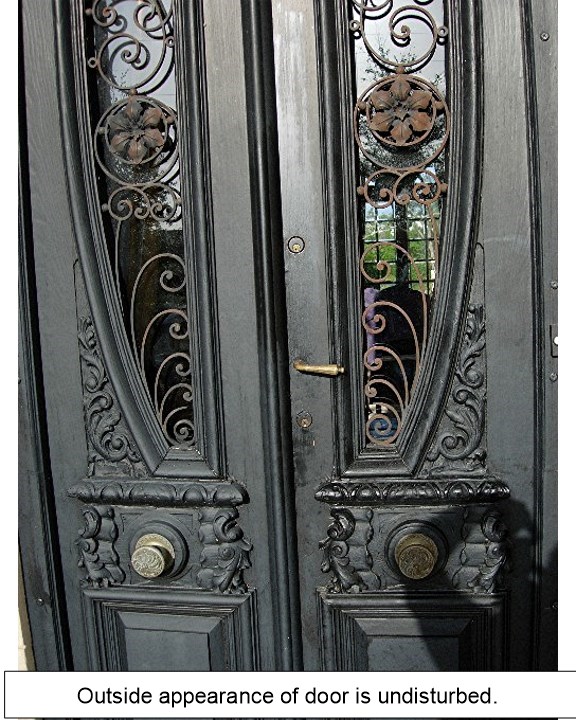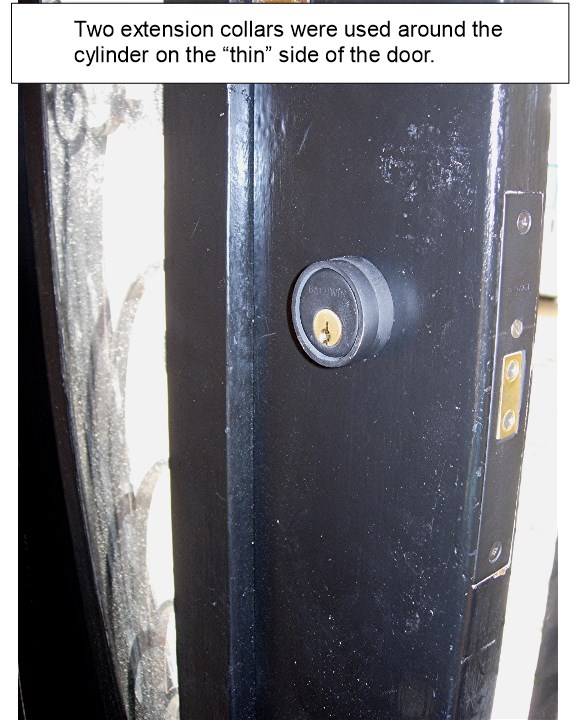This month I would like to highlight a job I did several years ago. I was referred to the customer by the local Baldwin hardware dealer. I was told the double-door was 100 years old. The lock in the door was about 30 years old. The customer showed me photos of the doors when he salvaged them. Most of the bottom section of the doors were deteriorated and missing. A carpenter restored the doors to their present glory. I will show you these doors, they really are beautiful.
One morning the customer tried to open the door but the deadbolt was stuck. A locksmith was called to get the door open and repair the lock. I was told the locksmith scratched his head, studied the problem a little while, then left in a bewildered daze. The home owner took it upon himself to unlatch the inactive door and pull both doors open. He re-locked the inactive door then realized he could not close the active door because the deadbolt would not retract. The home owner took a hammer and pounded the deadbolt back into the door. Now the door would close, but not lock.
My job was to install a new Baldwin mortise deadbolt. The Baldwin dealer was told the doors were 2 inches thick. So the dealer sold the home owner two mortise cylinders 1 1/8 inches in length. This would have worked fine if the lock was installed in the center of the door. The edge of these doors had a step, commonly called a rabbited edge. The lock had to be installed off center.
The wood in this door was very hard. As I cut the mortise cavity the wood became harder as the drill bit went deeper. There was a lot of smoke. I had to keep stopping for fear I would start a fire.
I attached the router template into my jig. This template, when used with a router guide will cut a perfect mortise for the deadbolt face plate. Unfortunately Baldwin had a design change and my router template was 1/16 of-an-inch to short at each end. I compensated for this by cutting the rest of the face plate mortise with a utility knife.
The job was completed in 4 ½ hours.


